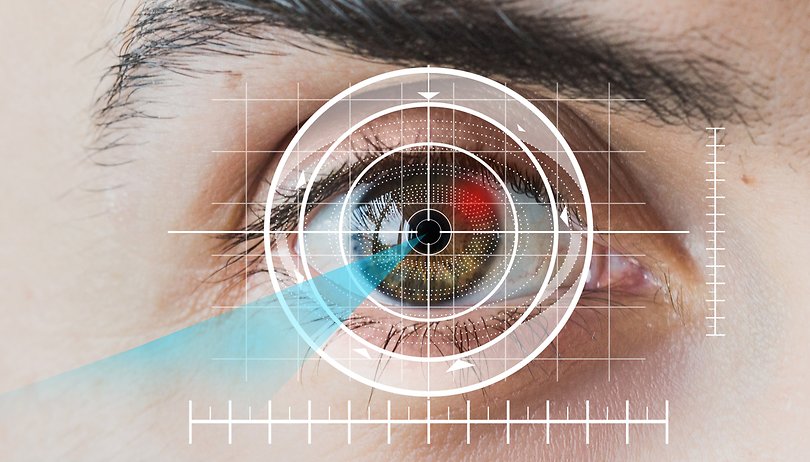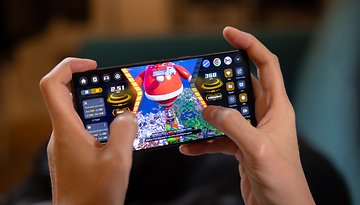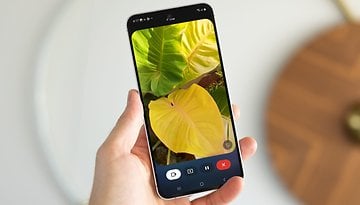Samsung's next moves in the biometry battle could be bloody


Face recognition technology is all the rage right now, and likely to be a prominent feature of many new smartphones in 2018. It must be rough for Samsung, who introduced early versions of this biometric tech to the market, only to see Apple's superior FaceID steal the spotlight. But there is evidence that points to a few interesting steps the Korean company is taking to steal a march on the Cupertino team. Let's take a look at what we can expect.
Biometry. Love it or hate it, it looks like our devices will increasing be relying on our faces, fingers and more to identify and authenticate the user by our definitive biological characteristics. Apple is going all-in with FaceID, to the point of abandoning fingerprint recognition altogether.
Samsung, on the other hand, has failed to match their American adversaries in this field, despite introducing face recognition on their devices earlier (although it's worth noting that Google was actually first in the fight back in 2011, with a basically botched and aborted face recognition feature on the Nexus 5). Two sources indicate what the Korean company can do to push ahead in the biometry battle. The first is a combination of existing technologies that we could see introduced with the Samsung Galaxy S9. The second is something new, slightly sinister, but even closer to our hearts.
'Intelligent scan' combines existing tech to make face recognition more effective
First up on the horizon sees Samsung combine face unlock and iris scan dubbed 'intelligent scan'. This intriguing tidbit was uncovered by XDA developers in an APK teardown of the Settings app from latest unreleased Android Oreo beta for the Samsung Galaxy Note 8.
Strings in the teardown refer to 'intelligent scan', a feature that "combines face and iris scanning to improve accuracy and security even in low or very bright light." Although the current 8th-gen Galaxy phones all feature iris scanners, this intelligent scan is nowhere to be found in their software. Thus, its presence in this Oreo beta indicates that it could well debut on the Galaxy S9, the release of which is just around the corner at this year's MWC at the end of February.
XDA senior member mweinbach uploaded the video below, presumed to be the help video Samsung will use to get people acquainted with the new biometric tech:
So as you can see above, face scanning and iris scanning will work in tandem to quickly unlock the phone and make it more effective under poor light conditions, which is a major problem with face scan tech today. The two-layer process should also increase accuracy and dependability, and reduce the risk of this kind of authentication being bypassed with the use of masks, models or pictures of the user's face.
Samsung's sanguine security
Improving face recognition is an obvious move to take given what a trendy selling point it is right now, but recent patent filed by Samsung that surfaced on WIPO (World Intellectual Property Organization), show a more innovative approach from Samsung. One that really gets under the skin, at what's in our hearts. Yes, it's in the blood.
Titled 'Real Time Authentication Based On Blood Flow Parameters', the patent proposes a sensor that measures the user's blood flow. Authentication is achieved "at least in part" by sensor data that identifies at least one physiological biomarker and one morphological characteristic of the blood flow.
Since this is just a patent, and patents can often be just staking out a claim on an idea that doesn't really work out once it's been run through R&D, it's too early to say much about whether we'll see the Samsung Bloodphone coming out soon, or even whether this tech will be any good. But the "at least in part" wording suggest that its in consideration as another factor in a process where different biometric scans work in tandem, such as in the previously mentioned intelligent scan.
Although it might sound a little creepy, I can easily see the advantages to this. So long as you're alive, your blood flow will keep going could be effectively scanned without lighting conditions being a factor. You won't have to worry about growing out a beard or receiving a facial scar, or someone just making a copy of your face. As someone who is also worried about my face data being sold, another alternative is appealing.
Let's not forget about the in-display fingerprint reader
When considering Samsung's next steps in biometry, it's hard not to think of the in-display fingerprint scanner, a much hyped development that is not, in fact, going to debut on the Samsung Galaxy S9, though perhaps it is being saved for the Note 9 instead.
To have the scanner seamlessly integrated under the phone screen is a feature that would appeal to many, but given Apple's direction, it may be that interest in developing fingerprint recognition tech may fall by the wayside in favor of this fixation with the face. But, as fun as facial recognition is, it's just not going to cut it when it comes to security, and that's why at the very least, it will have to be backed up by other biometric data such as the aforementioned blood flow method. Personally, I would hope that development of more sophisticated fingerprint readers continue, and as alternative to face unlocking rather than a mandatory part of an 'all-inclusive' bio-scan package.
Facial recognition is today's fad but will never be good enough alone
I'll come out as facial recognition skeptic, a fan of the old fashioned password which I have more control over than the shape of my face. We've gone into detail as to why biometry could actually be a very bad idea, at least as an authentication method. But it's going to be pushed, because it's both technologically impressive and fast. And not least because it has the potential to harvest a lot of juicy data from users.
But face recognition as it stands now is a nice toy, but not really that secure, as various unlockings by various relatives, models, masks and pictures etc have been shown to fool it. Even Apple's vaunted FaceID can be tricked. The data uncovered in Samsung's software strings and patent documentation points to where this is going. For biometry to be really secure, the next steps will be multiple sensors working in tandem to collect different kinds of data. This will lead to to a level of accuracy that could be impossible to fake, but also a whole new level of intimacy surrendered on the part of the user.
Do you have a favorite biometric unlock method? If you could introduce another, what would it be?
Source: XDAdevelopers, patentscope




















I think your poll could safely include password & pin together, since no one voted pin, they might confuse the two.
Perhaps a small definition for pin would make it plain, (numbers only) ?
I for one, will never use voice, face, fingerprints, or any other way to authenticate, because of certain laws in the USA. Password or pin are protected as of now. All the rest are NOT.